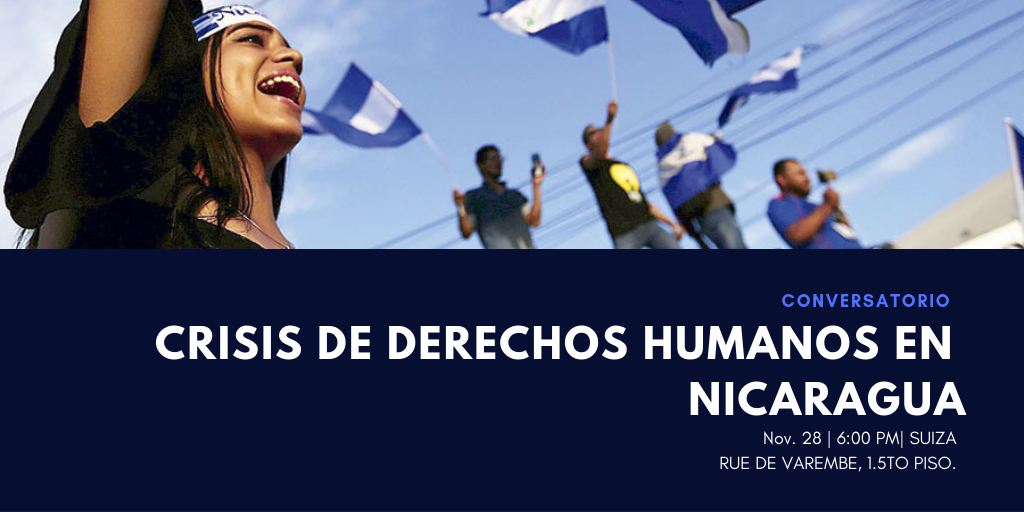Nicaraguan human rights defenders will talk in Geneva about the evolution of the crisis in their country
Seven months after the current human rights crisis started in Nicaragua as a result of the government’s repression of peaceful protests, a group of human right defenders will hold a public conversation in Geneva on November 28th with the aim of making visible the consequences and permanence of the crisis. The crisis continues now with […]

Seven months after the current human rights crisis started in Nicaragua as a result of the government’s repression of peaceful protests, a group of human right defenders will hold a public conversation in Geneva on November 28th with the aim of making visible the consequences and permanence of the crisis. The crisis continues now with the prohibition of civic demonstrations and the prosecution of hundreds of protestants, students and activists who have been arrested for participating in protests and are being subjected to trials in which the guarantees of due process are disregarded.
In the conversation, organized by the International Institute on Race, Equality and Human Rights (Race and Equality), the human rights defenders will describe their own experiences during the crisis and the risks they face in their daily work.
Special emphasis will be placed on the situation of injustice and defenselessness faced by populations that traditionally experience discrimination, such as women, indigenous persons, Afro-descendants and the LGBTI community. These groups have been repressed for defending democracy and demanding justice and respect for human rights.
The human right defenders will also refer to the situation faced by hundreds of political prisoners, who have reported torture and ill treatment in prisons and detention centers. According to the Nicaraguan Center for Human Rights (CENIDH, for its initials in Spanish), of the 602 citizens imprisoned as of November 14th for participating in the protests, 563 are men and 50 women, of which 4 are transgender women.
The image of “normality” that the Nicaraguan government intends to establish both nationally and internationally contrasts diametrically with the vision that human rights defenders will provide that day, which is that in Nicaragua “nothing is normal”, since the violations of human rights committed by the Nicaraguan authorities are systematic and remain unpunished.
Nicaragua will be evaluated by the Universal Periodic Review (UPR) in 2019. This review will offer human rights defenders, civil society organizations, and the international community an important opportunity to peacefully influence the crisis that today overwhelms the Nicaraguan people.

